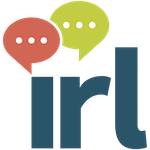Crisis Intervention Resources
IRL Social Skills offers social skills courses and workshops for socially struggling teens and adults and their families. Social skills are among the most functional skills a person can possess.
While we work to create a safe, supportive environment for all who attend our courses, our program is not a support group. We do not diagnose or treat psychological disorders or developmental issues.
If you are in need of mental health counseling, here are some resources:
Give Us The Floor (GUTF)
GUTF is a San Francisco-based non-profit organization. They help teens deal with distress through unique, peer support groups that leverage social media to provide constant contact and anonymity in a teen-only community. Trained teens facilitate these confidential, teen-only, Supportive Group Chats and members help each other with common mental health and social issues such as depression, isolation, anxiety, body image, bullying and relationships.
Check their YouTube channel and Instagram profile.
Trevor Support Center
Crisis intervention and suicide prevention for LGBTQ and questioning youth, available 24/7/365.
Text the word “START” to 678-678 or call 1-866-488-7386.
http://www.thetrevorproject.org/pages/support-center
Trevor Space
Under the umbrella of The Trevor Project is the TrevorSpace—a social networking site for lesbian, gay, bisexual, transgender, queer and questioning (LGBTQ) youth under 25 and their friends and allies. https://www.trevorspace.org
Crisis Text Line
Offers free, 24/7 emotional support for those in crisis.
Text SUPPORT to 741-741 or http://www.crisistextline.org/
National Suicide Prevention Lifeline
A 24-hour, toll-free, confidential suicide prevention hotline for anyone experiencing suicidal crisis or emotional distress.
Call: 1-800-273-TALK(8255) or http://www.suicidepreventionlifeline.org/
Feeling Kinda Blue
Feelingkindablue.org is a social networking site established to serve those living with depression, anxiety, grief, emotional pain, and other mental illnesses. The mission is to reduce social isolation by making connections through experience sharing.
https://feelingkindablue.org/
Drug Watch
We know that many autistic people identify as LGBTQ+, trans, and nonbinary. Members of the LGBTQ+ community have unique health needs and risks that they have to be aware of to stay healthy. In addition to risks that affect all men and women regardless of gender identity or sexual orientation, such as heart disease and cancer, people in the LGBTQ+ community may face certain higher physical and mental health risks. This free web resource provides health information guides and research on various medical conditions and unsafe drugs.
